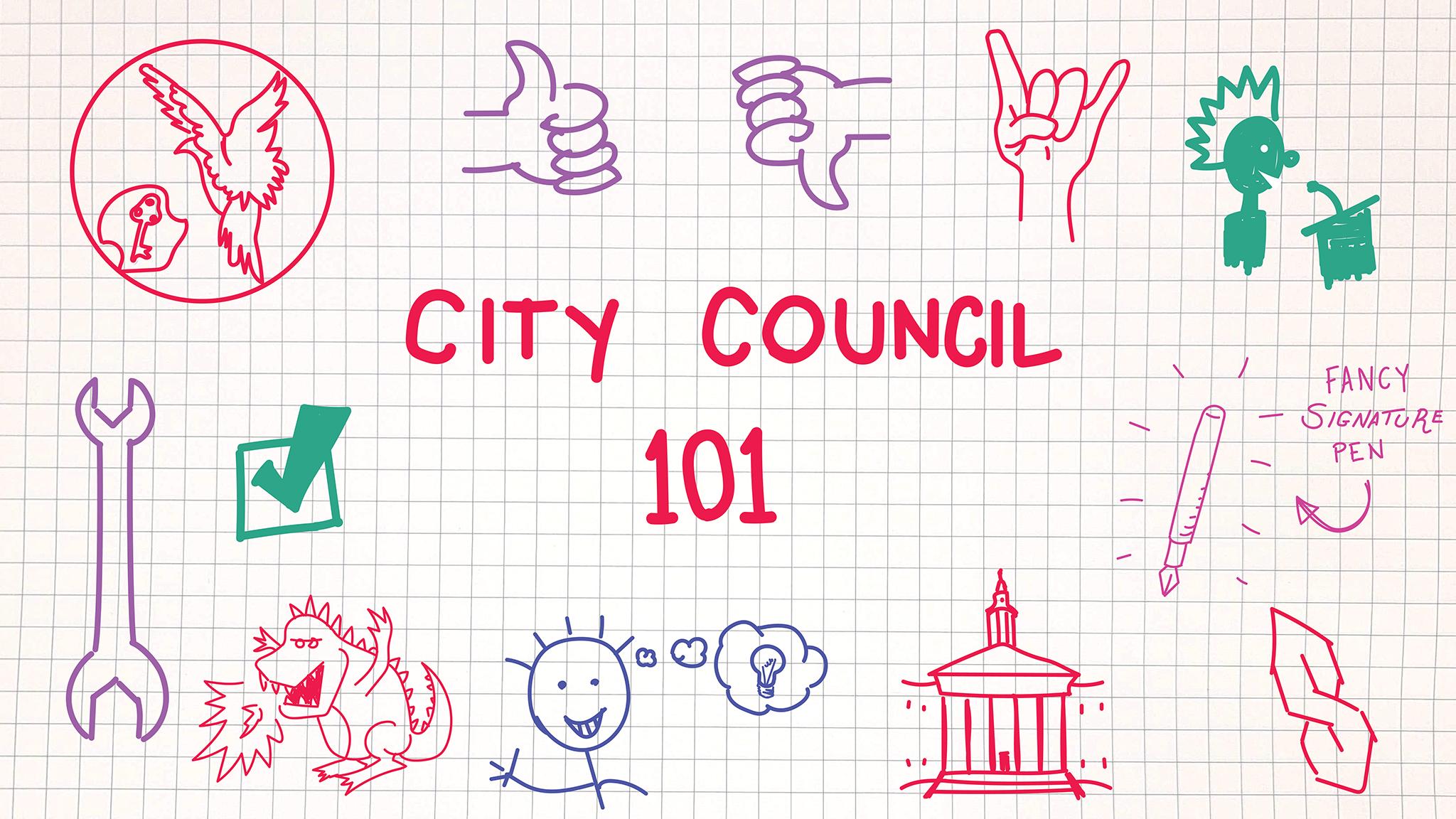With a new City Council and Mayor, it's time for our new and returning elected officials to get to work. If the spring municipal election has you wanting to follow City Council more closely this term, here's your guide to tuning in. And since much of local government feels like legal language from another planet, we've sprinkled in a glossary of terms to know in bold.
What does Denver City Council actually do?
Council is the legislative body -- meaning it can pass and amend local laws, including bills that control zoning. A few recent laws include raising the minimum wage and decriminalizing jaywalking.
Council can also refer ballot questions to voters. In recent years, Denver voters have passed ballot measures on a number of taxes to fund things like homelessness support, preschool funding and college scholarships for low-income students. The potential redevelopment of Park Hill Golf Course has also gone before voters multiple times.
But the mayor holds a significant amount of sway, including veto power over Council bills (though Council can override vetoes with nine votes). The mayor also has enforcement power and drafts the budget, deciding which city initiatives actually get funding. Council can pass amendments to the budget - but risk the same veto process as with bills.
Councilmembers can also host things like community events or commission traffic studies on streets with safety issues. But City Council spokesperson Robert Austin said that responding to citizen complaints involves playing middleman, connecting residents with other city services (which means if you want that pothole filled, he suggests calling 311 directly).
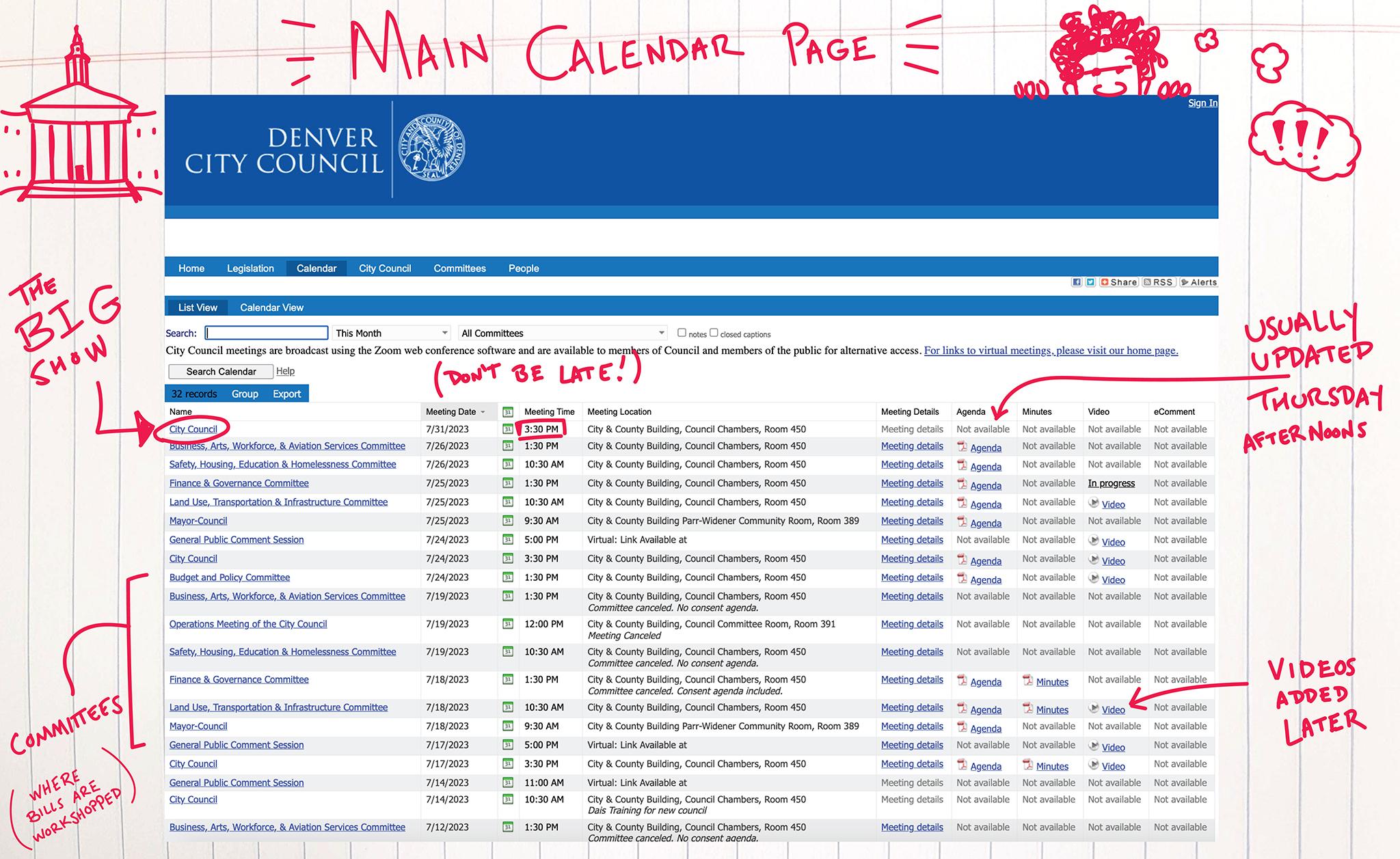
City Council meets (most) Monday afternoons at 3:30 p.m.
Some holidays push Council meetings to Tuesdays, but for the most part, City Council's first session starts at 3:30 p.m. on Monday. Community members can attend in person, on the fourth floor of the City and County building at 1437 Bannock St. You can also tune in on your TV or online with the Channel 8 stream, with Spanish translation services available.
In that first part, Councilmembers voice any announcements, approve proclamations and vote on resolutions and bills. Council votes on most resolutions and bills in one big block, called the consent agenda. The vote on the consent agenda is unanimous, meaning that if a Councilmember wants to vote no, suggest an amendment or recuse themselves, they must call that item out for an individual vote.
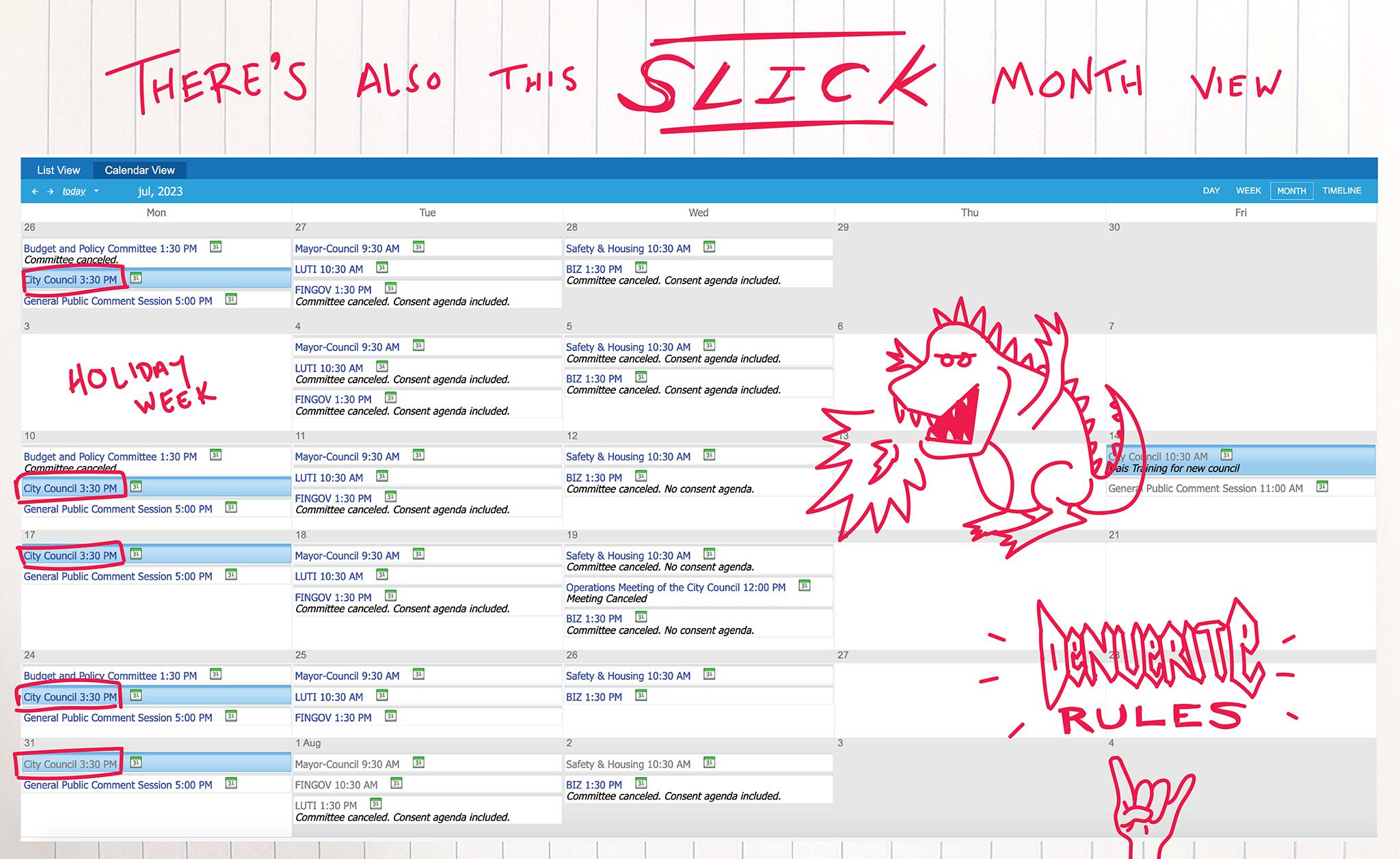
Then, City Council breaks until 5 p.m., when public comment starts. People can comment in person or on Zoom, but they need to sign up in advance online or by calling 720-337-2000.
At 5:30 p.m., City Council holds public hearings on certain bills, where city staff involved in the legislation present to Council. All bills involving zoning changes require public hearings, along with select other bills and resolutions. Community members can sign up online to comment. People can comment in person or on Zoom, or send written remarks to [email protected]. During public hearings, Councilmembers can ask questions and comment before a final vote.
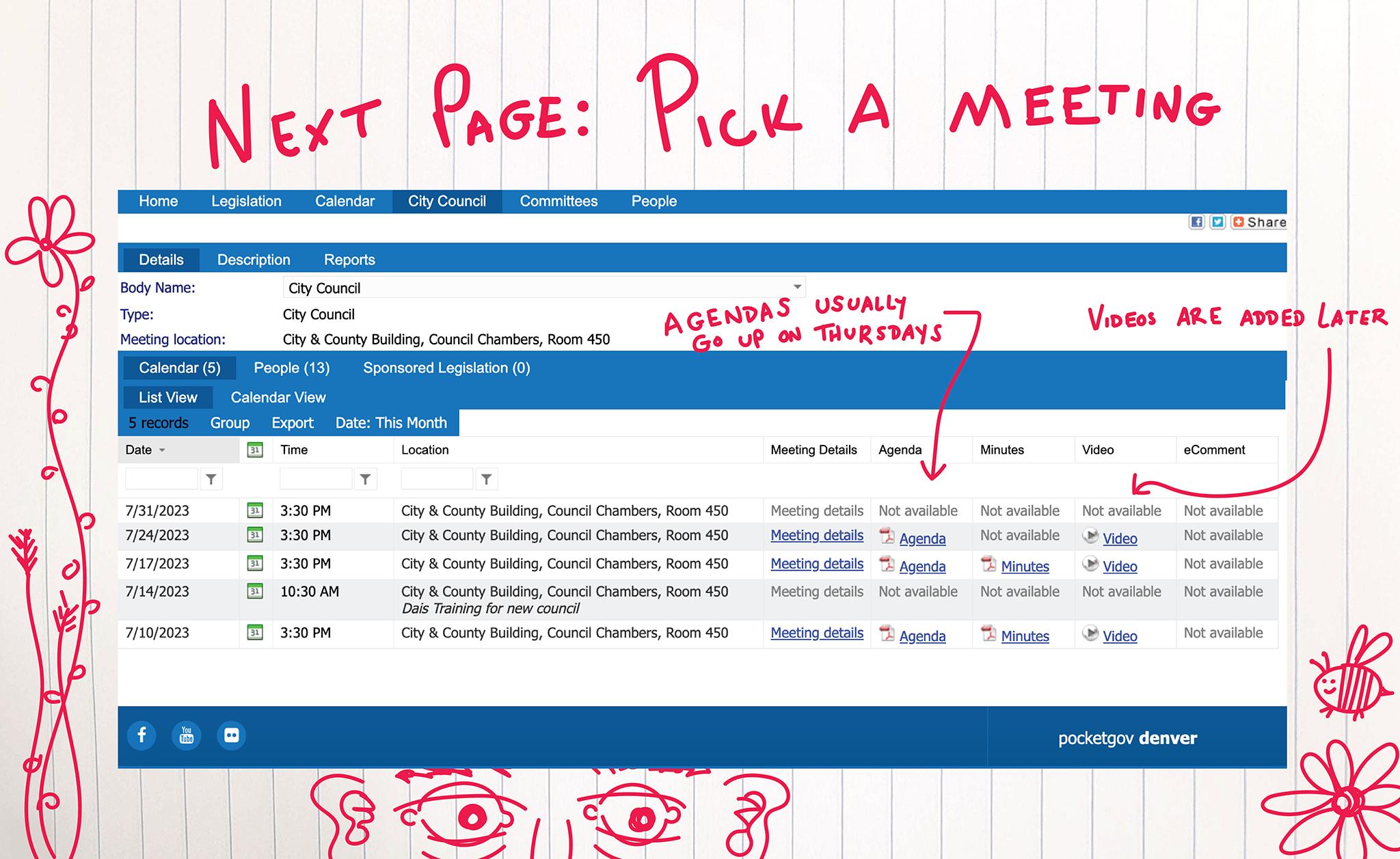
Bills, resolutions, proclamations -- what's the difference?
Proclamations typically recognize holidays and community figures or raise awareness of issues. For example, a May proclamation declared June 2 as the "9th Annual National Gun Violence Awareness Day," and multiple June proclamations recognized city staff members for service to various organizations and departments.
Resolutions typically cover things like contracts and appointments to local boards and committees. They also include liability claims, where Denver settles with people suing Denver over things like police misconduct claims or injuries involving the city. For example, a June resolution approved a contract with Intermountain Electric, Inc, for $745,200 "to maintain the high voltage electric power equipment and distribution system at Denver International Airport."
Councilmembers vote on resolutions once, typically in a block as part of the consent agenda in the 3:30 p.m. session. Council will vote on a resolution individually if a member calls it out for a vote, or if it has a public hearing in the 5:30 p.m. session.
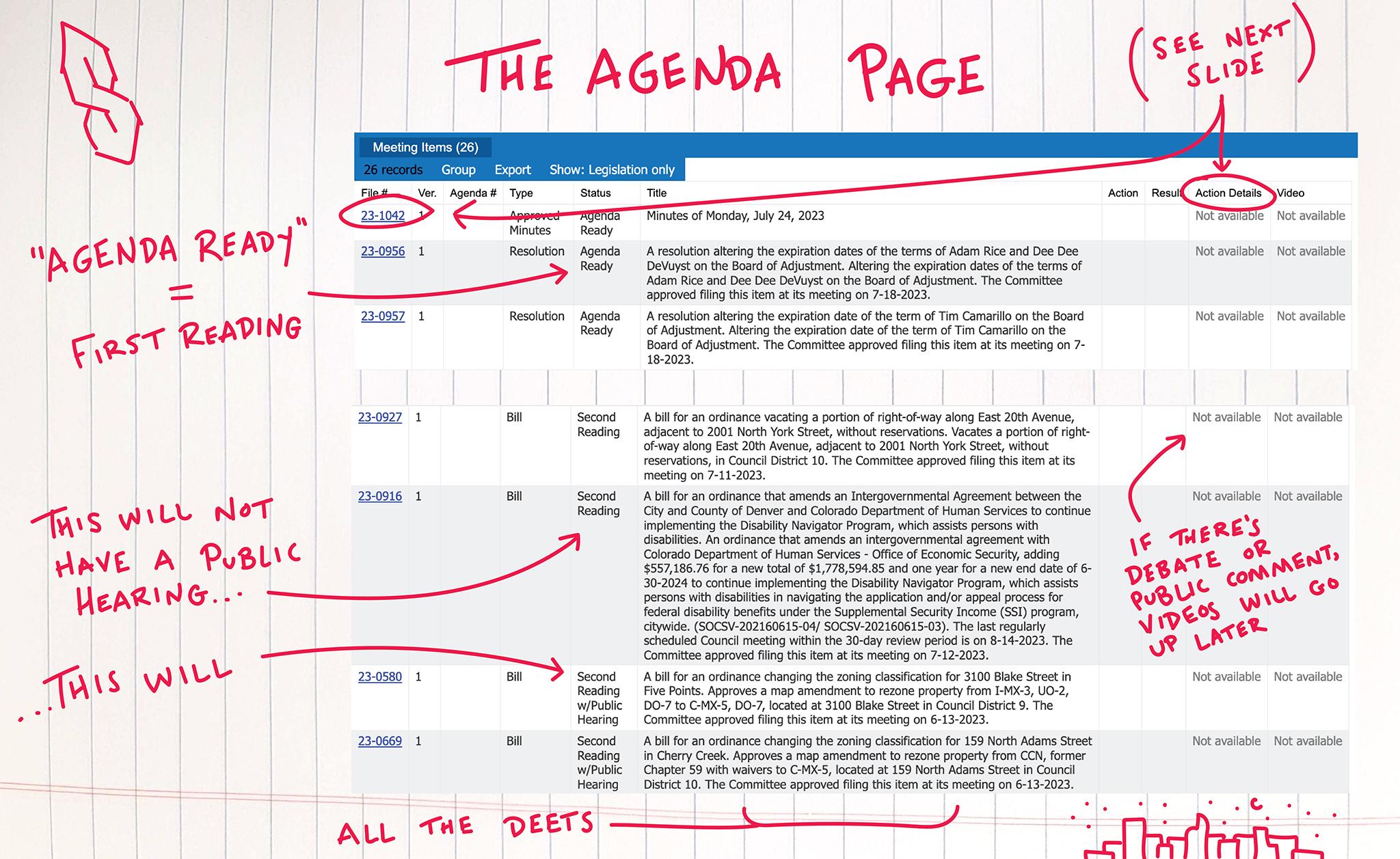
Bills are new legislation or amendments to existing legislation. They are developed between Councilmembers, the mayor's office, city departments and any other local stakeholders. For example, recent bills passed by Council include stronger protections against wage theft and new controversial parking restrictions. There are also zoning bills, which allow Council to change land use. This includes a recent bill making it easier to build Accessory Dwelling Units and a controversial bill downzoning a medical center.
Councilmembers vote on bills twice. If a bill is listed as "Agenda Ready," that means the bill is not up for a final vote that night. If a bill is listed as "Second Reading," that means Council is conducting a final vote. Bills typically pass in a block as part of the consent agenda in the 3:30 p.m. session. Council will vote on a bill individually if a member calls it out for a vote, or if it has a public hearing in the 5:30 p.m. session.
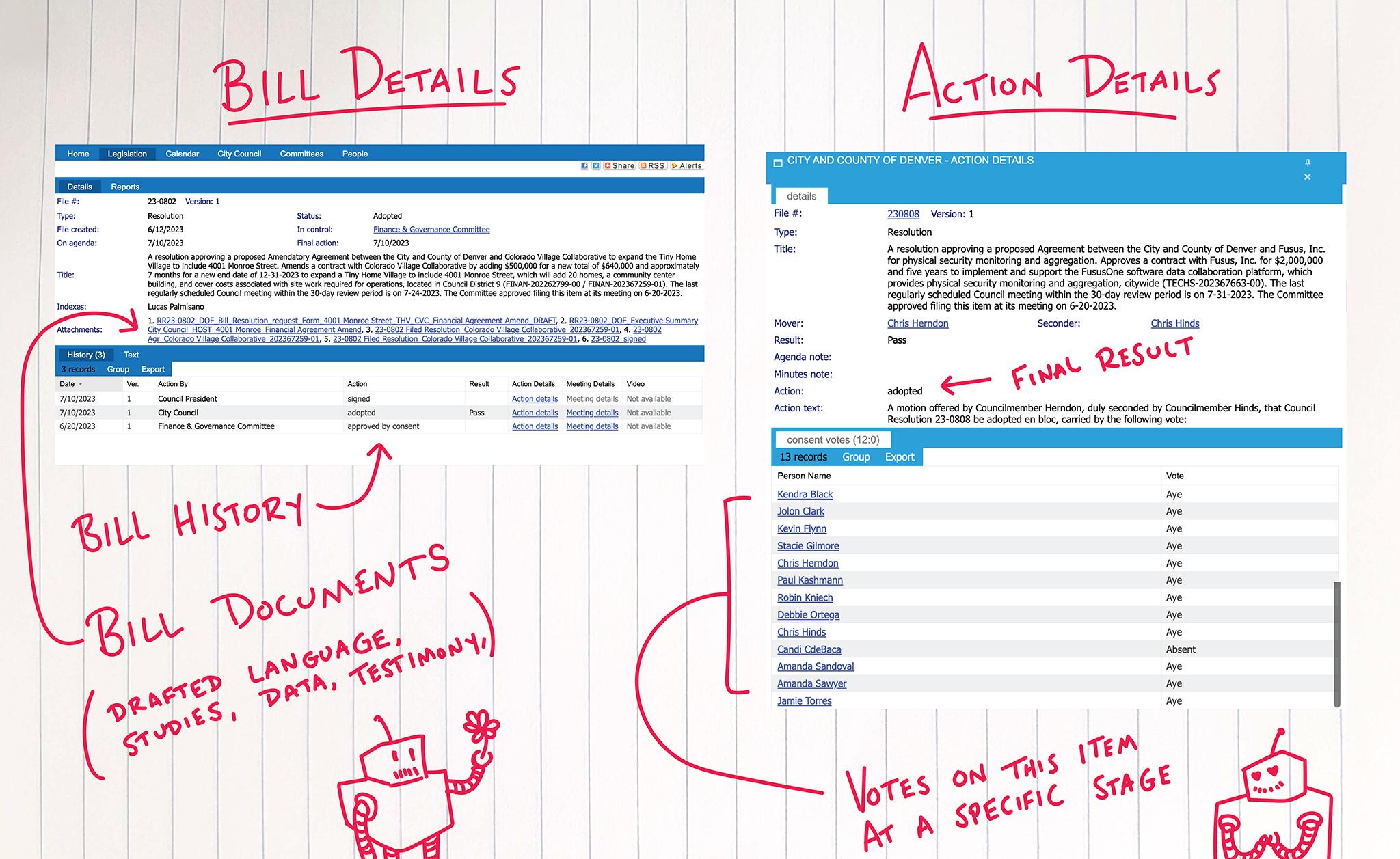
How does a bill become a law?
Bills are developed between Councilmembers, city agencies, the mayor's office and other stakeholders like nonprofits, businesses and community groups. Councilmembers might host roundtables, community meetings or other forms of engagement when workshopping a bill.
Once bills are ready for consideration they get assigned to one of Council's five committees:
- Budget and Policy (BPC)
- Land Use, Transportation and Infrastructure (LUTI)
- Finance and Governance (FinGov)
- Safety, Housing, Education and Homelessness (Safety)
- Business, Arts, Workforce and Aviation Services (Biz)
The committees have six to seven members. They meet weekly to hear presentations on bills, resolutions and general updates from city departments.
You can find the committee schedule, agendas and associated documents at the Council calendar here. Councilmembers elect a Council President annually, who appoints members to committees (you can find the full list here). During their first meeting in July, members elected Council President Jamie Torres for her second term.
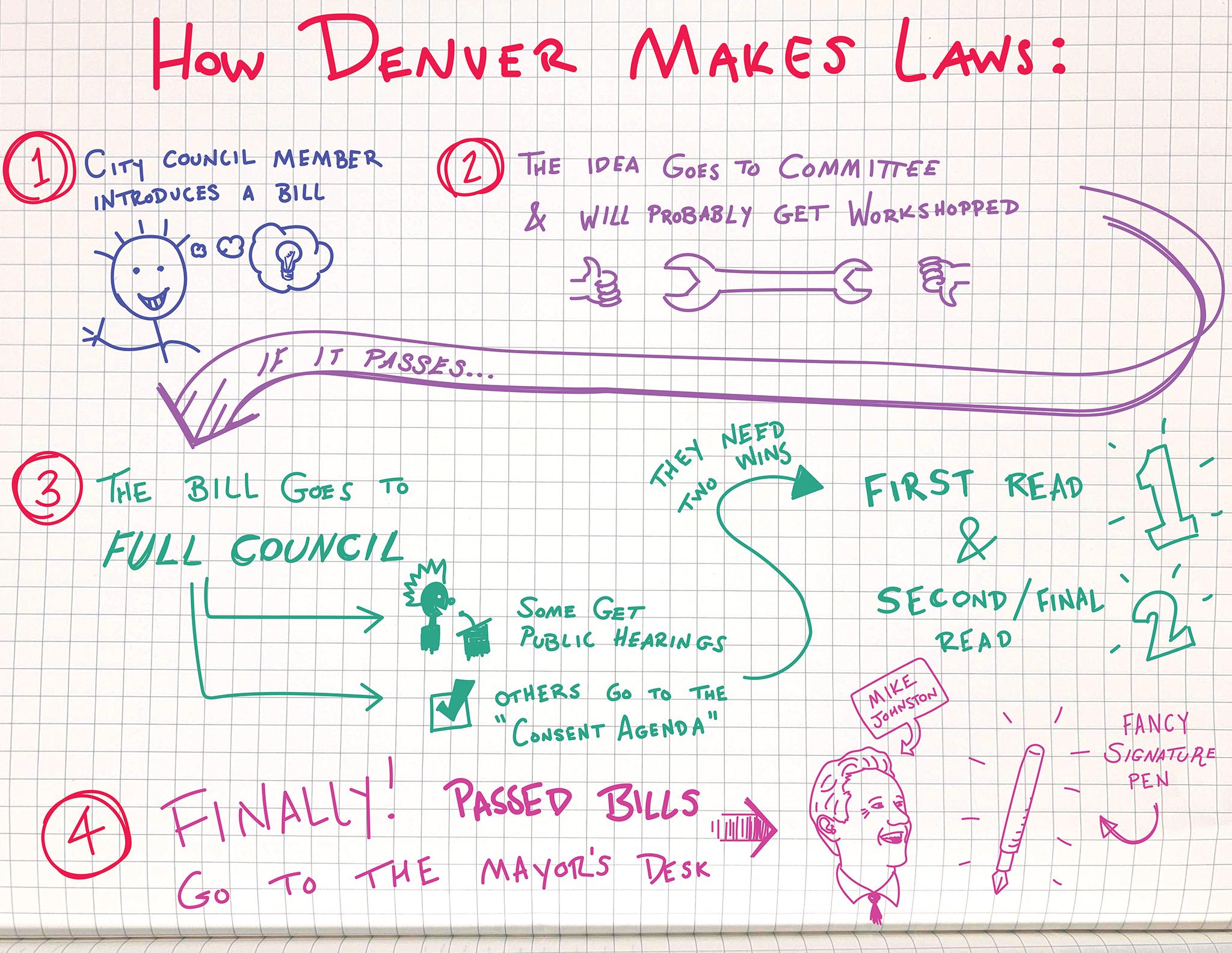
If a bill has a public hearing, community members can sign up for public comment in committee. You can find more information about signing up here. After presentations, questions and comments, Councilmembers vote to send bills out of committee for consideration before all of council.
Once a bill makes it out of committee, it typically lands on the Council agenda a few weeks later (resolutions also get voted out of committee before landing on Council agendas). City Council has to vote on the bill twice; once as a first read, and second as a final read, usually a week later. Bills need seven votes to pass.
Finally, the bill needs the mayor's signature. This is a key step, one that gives the mayor significant sway over what City Councilmembers hope to accomplish -- because if the mayor disagrees with a bill, it might make it all the way through Council just to get vetoed. In 2021, former mayor Michael Hancock vetoed a flavored tobacco ban. Council can overturn a veto with a supermajority of nine votes -- something they did to pass a budget amendment for additional crosswalks in 2022.
Committee meetings are a good place to tune in about issues you care about because bills and contracts are still in flux.
Once something passes out of committee, Councilmembers must pass amendments to make changes.
"If it's on the final vote, and no one's heard anything about it, it's too late for the residents to get involved," Austin said. "Whereas if it's currently in committee, then they have an opportunity to interact with their member, to ask questions, sign up for public hearings, that kind of thing."
While a lot of city documents are full of confusing legalese, committee hearings can be easier to understand, because expert city staff are presenting information for the first time to Councilmembers, who are not necessarily experts on everything that passes their desk. All Council meetings are recorded and published online afterwards, with timestamps for each item, so you can jump right to a specific bill or resolution if you are just interested in one topic. You can also search for specific pieces of legislation or keywords here.
What are other ways to follow what Council is up to?
Other than rigorously following Denverite (duh), you can sign up here to get weekly emails on Thursdays with the upcoming Council and committee meeting agendas.
If you want to know what your Council member is working on specifically, or what is going on in your district, you can sign up for your Councilmember's weekly newsletter. You can find your Councilmember here.
Here are all the Councilmembers and the committees they sit on:
- At-large: Serena Gonzales-Gutierrez (FinGov, Safety, BPC)
- At-large: Sarah Parady (Safety, Biz, BPC)
- District 1: Amanda Sandoval (FinGov, LUTI, BPC)
- District 2: Kevin Flynn (Safety, Biz, BPC)
- District 3: Jamie Torres (FinGov, LUTI, Safety, Biz, BPC)
- District 4: Diana Romero Campbell (LUTI, Biz, BPC)
- District 5: Amanda Sawyer (FinGov, Safety, BPC)
- District 6: Paul Kashmann (FinGov, LUTI, BPC)
- District 7: Flor Alvidrez (FinGov, LUTI, BPC)
- District 8: Shontel Lewis (FinGov, Biz, BPC)
- District 9: Darrell Watson (LUTI, Safety, BPC)
- District 10: Chris Hinds (LUTI, Biz, BPC)
- District 11: Stacie Gilmore (Safety, Biz, BPC)
Have other questions about how Council works or an agenda item catching your eye? Send me a note at [email protected].

